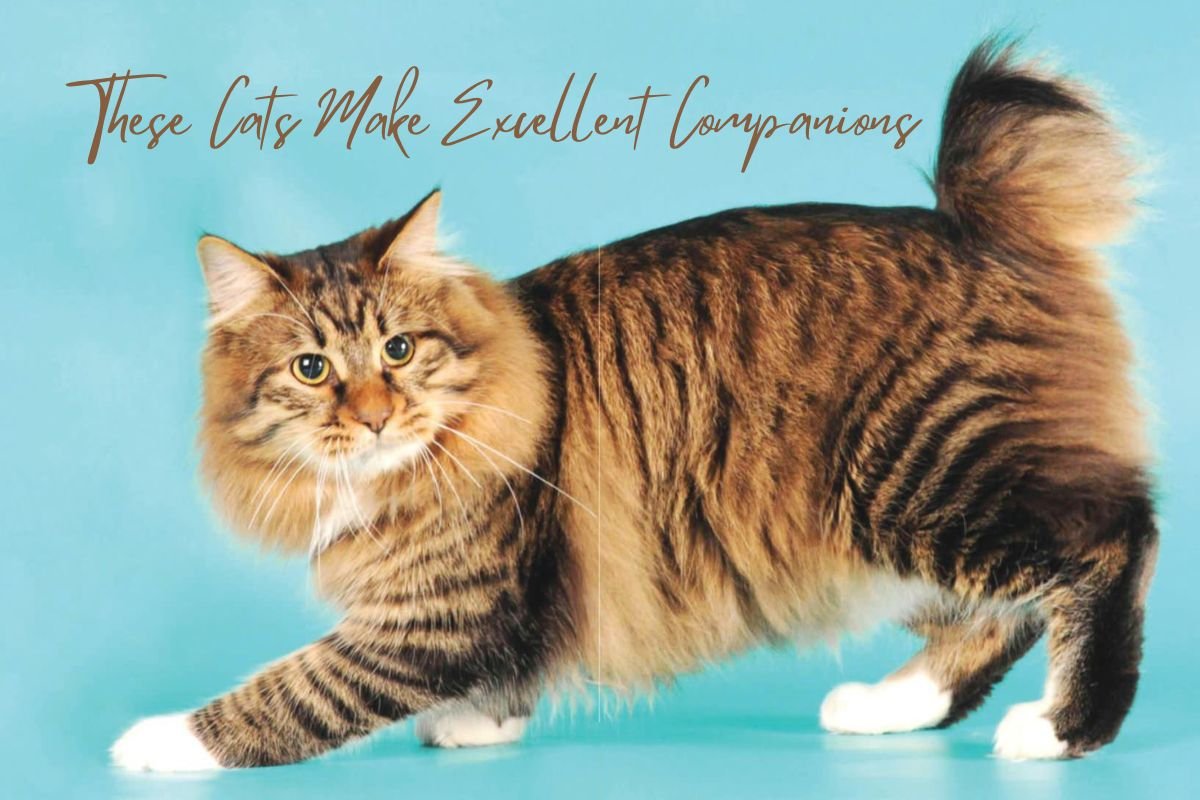American Bobtail cats are known for their friendly personalities, playful nature, and distinctive bobbed tails. These cats make excellent companions, but like any breed, they come with their own set of health concerns. If you’re considering bringing an American Bobtail into your home, it’s important to be aware of these potential health issues. Understanding these can help you ensure that your new feline friend leads a happy and healthy life.
Hip Dysplasia
Hip dysplasia is a condition where the hip joint doesn’t fit properly into the hip socket. This can lead to pain and arthritis over time. While more common in dogs, some American Bobtail cats can also suffer from this condition. It’s like having a door that doesn’t quite fit its frame, causing it to wear out faster. Regular vet check-ups and maintaining a healthy weight can help manage this issue.
Spinal Issues
Due to their unique tail, American Bobtails can sometimes experience spinal problems. Their shortened tails are a result of genetic mutations, which can also affect the spine. Think of it like a road with unexpected twists and turns, which can make the journey a bit bumpier. Regular monitoring by a vet can help catch and address any issues early.
Obesity
American Bobtail cats have a tendency to gain weight if not monitored properly. Obesity can lead to various health problems, including diabetes, heart disease, and joint issues. It’s like carrying a heavy backpack all day; it puts extra strain on the body. Providing a balanced diet and encouraging regular exercise are key to keeping your cat at a healthy weight.
Hypertrophic Cardiomyopathy (HCM)
HCM is a common heart condition in cats where the heart muscle thickens, making it harder for the heart to pump blood effectively. This condition can be serious but can be managed with early detection and proper treatment. Imagine trying to blow up a balloon with thick walls; it’s much harder and requires more effort. Regular cardiac check-ups are essential for early detection.
Allergies
Just like humans, cats can suffer from allergies. American Bobtail cats may be prone to skin allergies or food sensitivities. It’s like having an itchy sweater that you can’t take off; it can be very uncomfortable. Identifying and avoiding allergens, along with veterinary advice, can help manage these allergies.
Dental Issues
Dental health is crucial for cats, and American Bobtails are no exception. They can suffer from periodontal disease, which affects the gums and teeth. It’s like having a cavity that, if left untreated, can lead to more serious health problems. Regular dental check-ups and cleanings can help prevent dental issues.
Polycystic Kidney Disease (PKD)
PKD is a genetic condition where cysts form in the kidneys, potentially leading to kidney failure over time. It’s like having small balloons in your kidneys that slowly grow and cause damage. Regular screenings and a healthy diet can help manage this condition and prolong your cat’s life.
Urinary Tract Infections (UTIs)
American Bobtails can be prone to urinary tract infections, which can cause discomfort and lead to more serious kidney issues if left untreated. It’s like having a burning sensation every time you go to the bathroom. Ensuring your cat stays hydrated and monitoring their litter box habits can help catch UTIs early.
Gastrointestinal Issues
Some American Bobtail cats may experience gastrointestinal problems, such as irritable bowel syndrome (IBS) or food intolerances. This can lead to symptoms like diarrhea or vomiting. Imagine having a stomachache that just won’t go away; it’s not pleasant. A balanced diet and sometimes special food can help manage these issues.
Inherited Genetic Disorders
Due to their breeding, American Bobtails can sometimes inherit genetic disorders that affect their overall health. It’s like inheriting a family trait that isn’t always desirable. Regular vet visits and genetic testing can help identify and manage these conditions.
Conclusion
Owning an American Bobtail cat can be a rewarding experience filled with love and companionship. However, it’s important to be aware of the potential health issues that this breed may face. By understanding these health concerns and taking proactive steps, you can ensure that your American Bobtail lives a long, healthy, and happy life. Regular vet check-ups, a balanced diet, and plenty of love and attention are key to keeping your feline friend in top shape.
FAQs
How can I prevent obesity in my American Bobtail cat?
Maintaining a balanced diet and encouraging regular exercise through play can help prevent obesity in your cat.
What are the signs of hip dysplasia in American Bobtails?
Signs include limping, difficulty jumping, and reluctance to move. Regular vet check-ups can help diagnose this condition early.
How often should I take my American Bobtail to the vet?
It’s recommended to have at least one annual vet check-up, but bi-annual visits are ideal to catch any health issues early.
Can American Bobtail cats live with other pets?
Yes, American Bobtail cats are generally friendly and can get along well with other pets if introduced properly.
What is the life expectancy of an American Bobtail cat?
With proper care, American Bobtail cats can live between 13 to 18 years.
